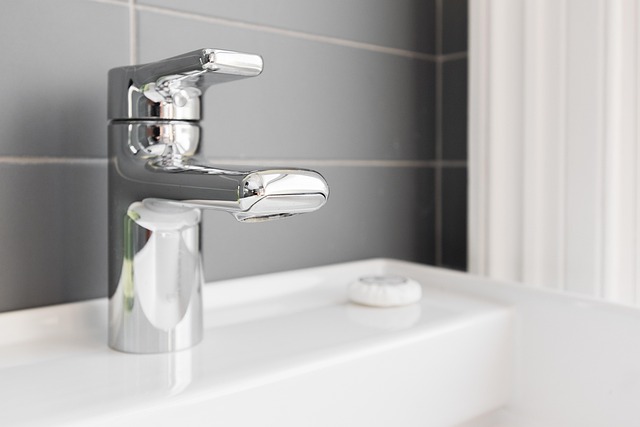Solar water heating offers an eco-conscious alternative to traditional hot water sources, utilizing solar power to reduce energy consumption and carbon footprint. Combining solar heaters with low-flow toilets enhances environmental friendliness and saves on utility bills. Regular maintenance ensures peak efficiency, while these measures contribute to a greener future by maximizing water conservation.
“Consider a shift towards eco-conscious hot water sources with the addition of a solar water heater. This green alternative not only reduces environmental impact but also offers significant cost savings over time. In this comprehensive guide, we explore the benefits of solar hot water systems, from understanding their operation to maintaining optimal performance. Discover how these systems, paired with low-flow toilets, can contribute to both your wallet and the planet’s health.”
Understanding Solar Water Heating: A Green Alternative
Solar water heating is a clean and renewable energy solution that has gained popularity as an eco-conscious alternative to traditional hot water sources. This system harnesses the power of the sun to heat water, offering a sustainable and cost-effective way to meet your household’s hot water needs. Unlike conventional heaters that rely on fossil fuels, solar water heaters are an environmentally friendly option, significantly reducing your carbon footprint.
By installing a solar water heater, you contribute to a greener planet by lowering energy consumption and minimizing the environmental impact associated with electricity generation. Additionally, many regions offer incentives and rebates for adopting solar technologies, making it an economically viable choice. With low-flow toilets and other water-saving fixtures, a solar water heater can further enhance your home’s eco-friendliness, ensuring both comfort and sustainability.
Benefits of Switching to Solar Hot Water Systems
Switching to a solar hot water system offers numerous environmental and financial benefits, making it an attractive option for eco-conscious homeowners. One of the key advantages is the significant reduction in energy consumption. Unlike traditional water heaters that rely on electricity or gas, solar systems harness the power of the sun, providing free and sustainable heating. This shift can lead to substantial savings on utility bills over time.
Additionally, solar hot water systems contribute to a more sustainable future by lowering carbon footprints. By reducing reliance on fossil fuels, these systems play a vital role in combating climate change. Moreover, many regions offer incentives and rebates for adopting renewable energy solutions, making the installation of solar water heaters even more appealing and cost-effective. This eco-friendly approach also extends to low-flow toilets and other water-saving fixtures, ensuring that your hot water usage is as efficient as possible.
Components and Installation Process: What You Need to Know
Adding a solar water heater is an excellent step towards embracing an eco-conscious lifestyle, offering a sustainable solution for your hot water needs. The system typically consists of several key components: a solar collector, a storage tank, and control mechanisms. The solar collector absorbs sunlight and converts it into thermal energy, which is then transferred to the water in the storage tank. This process relies on natural heat transfer, ensuring an efficient and environmentally friendly approach to heating water.
Installation involves careful consideration of your space and water requirements. You’ll need a suitable location for the solar panels, often a roof or an open area with direct sunlight access. The panels are then connected to the storage tank, which should be placed in close proximity to where you’ll use the hot water. Low-flow toilets and other energy-efficient fixtures can complement this system by reducing overall water consumption, making your home more sustainable and potentially lowering utility bills.
Maintaining Your Solar Heater for Optimal Performance
Maintaining your solar water heater is key to ensuring it operates at its peak efficiency, providing eco-friendly hot water for years to come. Regular cleaning and inspection are paramount. Start by clearing any debris or shading from the collector panels, as even small obstructions can reduce energy absorption. Inspect the system for leaks or corrosion, addressing these issues promptly to maintain water integrity and prevent damage.
Consider pairing your solar heater with low-flow toilets and efficient appliances to further optimize its performance. By reducing overall water usage, you’ll lessen the strain on your solar system and maximize its environmental benefits. Regular maintenance and smart home upgrades are simple steps that make a significant impact in contributing to a greener future.
Cost Savings and Environmental Impact: A Long-Term Perspective with Low-Flow Toilets
Adding a solar water heater is not only an eco-conscious decision but also offers significant cost savings over time. By harnessing the power of the sun, these systems provide a sustainable and efficient hot water source. One area where this becomes particularly evident is with low-flow toilets. These advanced toilets are designed to reduce water consumption without compromising performance, aligning perfectly with the goals of solar water heating.
The environmental impact extends beyond water conservation. Low-flow toilets contribute to a reduced carbon footprint by minimizing energy usage associated with traditional water heating systems. In the long term, homeowners can expect lower utility bills and a smaller environmental impact, making solar water heaters and low-flow toilets a powerful combination for a greener future.
Adopting a solar water heater is a powerful step towards an eco-conscious lifestyle, offering significant environmental benefits and long-term cost savings. By harnessing the sun’s energy, these systems provide a sustainable alternative to traditional hot water sources, especially when combined with low-flow toilets. With proper maintenance, solar heaters can deliver efficient, green hot water for years, making them a valuable investment for those seeking to reduce their carbon footprint.
